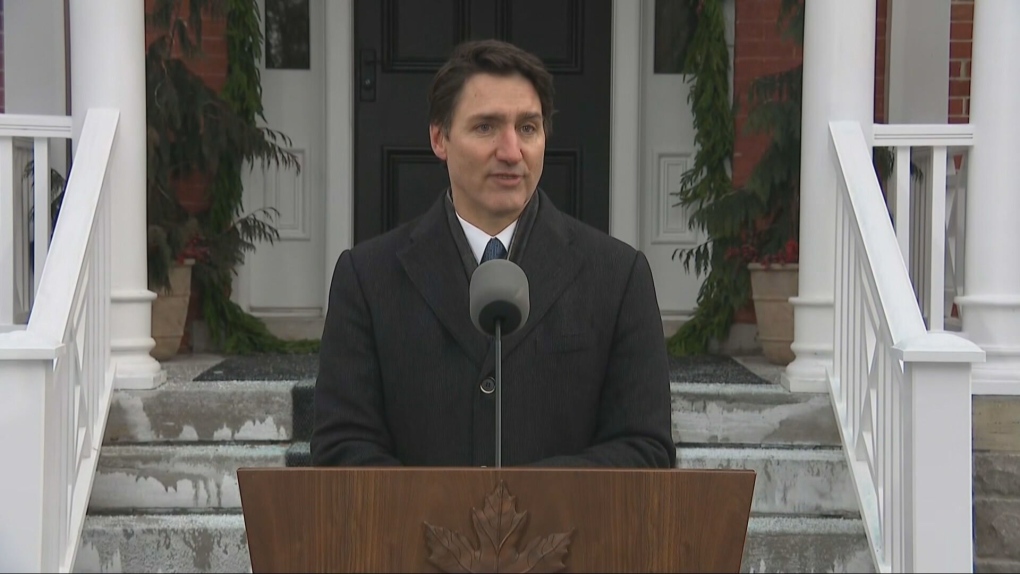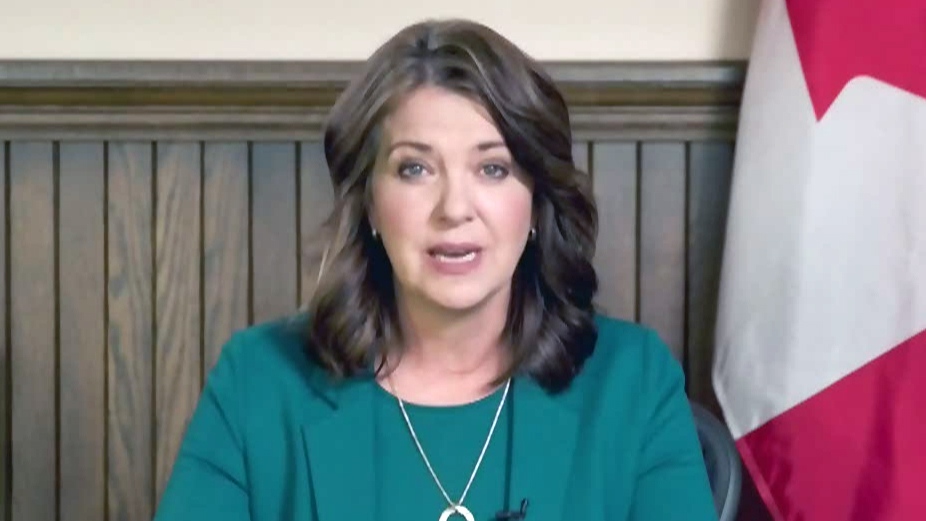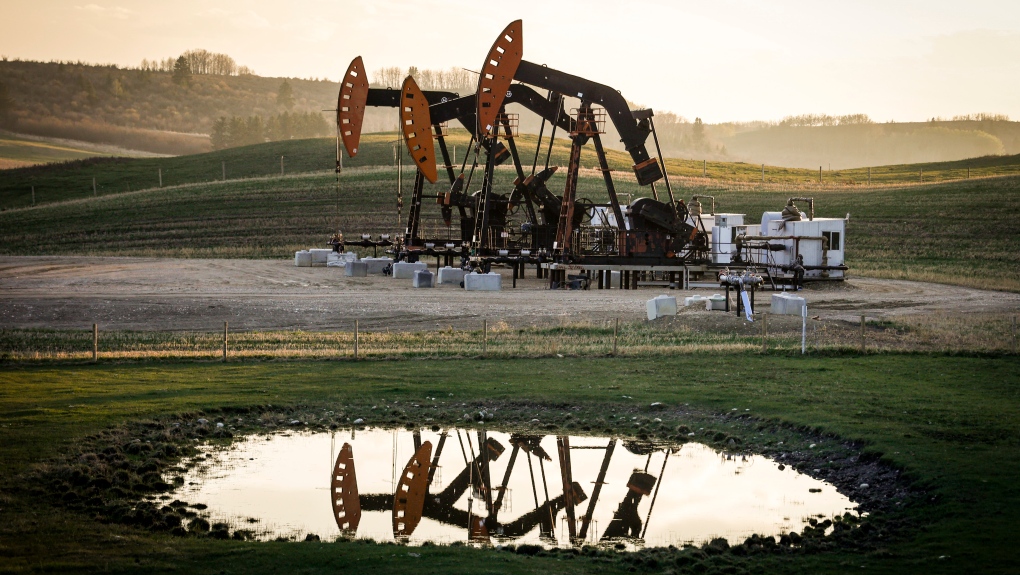Alberta business braces for looming U.S. tariffs, embraces potential opportunities because of them
While Alberta's trading future with the United States is uncertain given the imminent threat of punishing tariffs promised by incoming President Donald Trump, business leaders say there is reason for optimism the province could avoid extensive blowback given the importance of energy to Canada's neighbouring global superpower.
Trump, who won the presidential race in November and started floating the idea of having Canada join the U.S. as the 51st state later that month, said Tuesday he would rely on “economic force" to cajole the country into joining his republic as he cast his country's trade deficit with its northern neighbour as a subsidy that would be coming to an end.
Scott Crockatt, a vice-president of the Business Council of Alberta, said businesses are preparing for "the very strong likelihood" of tariffs on industry coming in when Trump assumes power on Jan. 20.
He said some sectors of the economy were "looking more optimistic" before Trump on Tuesday further suggested the U.S. would strongarm Canada economically to force it to turn American with the federal government in flux following Prime Minister Justin Trudeau's resignation and prorogation of parliament on Monday.
"The energy sector was up big yesterday, and it's up again today, but right on the heels of some of that optimism for some new thinking and new direction, it is the second big concern, which is there's no more important economic file for the Government of Canada, for business in Canada right now than Canada-U.S. trade," Crockatt told CTV News Edmonton on Tuesday.
"In the near term, Mr. Trudeau's resignation has actually created more, not less, uncertainty about what the future of that's going to look like."
 Prime Minister Justin Trudeau announces on Jan. 6, 2025, he will resign after the federal Liberal party choses a new leader. (CTV News)Prime Minister Justin Trudeau suspended parliament until March 24 and will step down after a Liberal leadership race, weakening his office as Trump comes into power. It has cast uncertainty around who will lead the Liberals and what will happen with a general election this year, likely this spring soon after the Liberals chose Trudeau's successor.
Prime Minister Justin Trudeau announces on Jan. 6, 2025, he will resign after the federal Liberal party choses a new leader. (CTV News)Prime Minister Justin Trudeau suspended parliament until March 24 and will step down after a Liberal leadership race, weakening his office as Trump comes into power. It has cast uncertainty around who will lead the Liberals and what will happen with a general election this year, likely this spring soon after the Liberals chose Trudeau's successor.
Dan Kelly, the president of the Canadian Federation of Independent Business, said Tuesday some firms are looking at opportunities outside of the domestic market and the Canada-U.S. relationship, either as exporters or importers from other parts of the world including Europe and Asia.
"Many are hoping that cooler heads will prevail and that this is a lot of bravado and won't materialize in deficits, but we can't afford to just expect that this is going to be a non-issue," Kelly told CTV News Edmonton.
While uncertainty hangs over Canada and how it will manage its relationship with the new Trump administration, Crockatt said Alberta businesses are hopeful elected leaders will continue to be active bargaining with their U.S. counterparts.
"A lot of Albertan businesses do contracts with the United States, with counterparts in the United States – particularly the energy and other natural resource sectors – and they've been doing deals that come into effect after the tariffs are likely to come into effect for more than a month now, so that's created a lot of uncertainty," he said.
"Businesses are managing that in different ways and they're optimistic that our politicians can try to nurture and negotiate the best possible version of the next chapter of basically what is the world's most important bilateral relationship."
 Alberta Premier Danielle Smith in September 2024 during a televised address. (CTV News)Some of those politicians stepping into the breach include provincial premiers, including Alberta's Danielle Smith, who said this week she plans to visit the U.S. every month this year to confer and discuss with Americans the importance of the relationship between the province and their country.
Alberta Premier Danielle Smith in September 2024 during a televised address. (CTV News)Some of those politicians stepping into the breach include provincial premiers, including Alberta's Danielle Smith, who said this week she plans to visit the U.S. every month this year to confer and discuss with Americans the importance of the relationship between the province and their country.
Smith said Monday it's up to her and other premiers "to make the case to the Americans ourselves in the absence of federal leadership." She is slated to attend Trump's inauguration and plans to stay in Washington for "four or five days."
"I hope to be able to put forward the case about how we are the Americans' best friend and trading partner," Smith said. "We can provide the resources that they need to be successful and that we are also their biggest consumer. We buy $293-billion worth of products from the United States, which is more than Germany, the UK, Italy, France and Vietnam combined.
"We shouldn't be in the line of sight of the U.S. president, so I would hope that we'll be able to make that case, but it is not helpful having so much uncertainty in who's going to be at the negotiating table."
Crockatt said there's potential for Canadian natural resources, "particularly oil and gas," to be "viewed somewhat differently."
"Those are so important to be upgraded in the United States, and we're really the only good supplier for those, and these are arguments that I can tell you are being made in real time right now," he said.
Doug Griffiths, president and chief executive officer of the Edmonton Chamber of Commerce, said Tuesday the threats of U.S. tariffs has prompted discussions between provinces of the need of more-liberal interprovincial trade and that Canada's relative stability compared to the U.S. could spur economic opportunities.
"At some point, it was easier for us to ship goods and ship products to the United States than it was to go to the provinces next door," Griffiths told CTV News Edmonton.
"This gives us an opportunity to rectify some of that, to find new opportunities around the world. Our stability compared to the United States right now may very well help drive our new investments and new technologies that improve productivity and attract more foreign investment and more capital, and this could be the edge of a boon for our economy, given the instability south of the border."
 Pumpjacks draw out oil and gas from well heads as wildfire smoke hangs in the air near Calgary on May 12, 2024. (Jeff McIntosh/The Canadian Press)British Columbia Premier David Eby said Tuesday Canadian provincial and territorial leaders have a meeting scheduled Wednesday to discuss how they can co-ordinate in light of Trudeau's announcement.
Pumpjacks draw out oil and gas from well heads as wildfire smoke hangs in the air near Calgary on May 12, 2024. (Jeff McIntosh/The Canadian Press)British Columbia Premier David Eby said Tuesday Canadian provincial and territorial leaders have a meeting scheduled Wednesday to discuss how they can co-ordinate in light of Trudeau's announcement.
"Given the state of the federal government currently, the leadership on this file has come from the premiers across Canada, and so we're going to continue to do that work," Eby said.
Eby said the premiers will make the case that the proposed tariffs "will mean a significant increase in prices for Americans" on costs like homes and electricity.
A date for the trade mission to the U.S. capital has not been set.
Trudeau will hold a meeting with premiers next week in Ottawa to discuss Canada-U.S. relations.
Kelly said Smith is "absolutely ... doing the right thing."
"I'm hoping all provincial premiers step up and build those direct relationships," Kelly said.
"We need a Team Canada approach, but right now, there's not really anybody speaking for Canada as a whole other than provincial premiers, but I have great faith in many of our provincial leaders that they can help carry some water for the country as a whole in this period of instability."
With files from CTV News Edmonton's Chelan Skulski, The Canadian Press and the Associated Press
CTVNews.ca Top Stories

Ontario pitches energy partnership with U.S. amid Trump's tariff, Canada annexation threat
In the face of incoming U.S. president Donald Trump’s threat to acquire Canada and impose tariffs, Ontario Premier Doug Ford says he wants to expand its energy supply both sides of the border.
Mexico's President Sheinbaum offers sarcastic response to Trump's 'Gulf of America' comment
Mexico's President Claudia Sheinbaum responded sarcastically on Wednesday to U.S. president-elect Donald Trump's proposal to change the name of the Gulf of Mexico to the Gulf of America.
JetBlue passenger suddenly opens exit door as flight is taxiing for takeoff at Boston airport
A person on board a plane at Boston Logan International Airport that was taxiing for takeoff suddenly opened an exit door and was quickly restrained by other passengers, authorities said.
Canada among 'top 5 losers' in new passport ranking
A new global ranking may raise doubts about Canada's reputation of being open to other countries.
LIVE UPDATES Tracking the L.A. wildfires: 2 dead as major fires at 0% containment, locals describe 'terrifying' escape
A series of wildfires are searing through the Los Angeles area, forcing many to evacuate their homes. Follow along here for the latest updates.
Ricki's and cleo retail brands closing, Bootlegger restructuring
Several Canadian fashion retailers will be closing their doors after ownership company Comark Holdings announced it has filed for creditor protection.
Newborn babies at a Virginia hospital have been suffering mysterious injuries. A nurse now faces abuse charges
Parents may now be closer to understanding what happened at the hospital, which has reported a series of mysterious injuries to newborns over the past several years.
WATCH 'Like driving through hell itself': Apocalyptic scene on L.A. highway
Terrifying video shows a California resident’s drive along the Pacific Coast Highway in Los Angeles, as the Palisades wildfire engulfs buildings and homes.
Mexico offers protection to famed singer after drug cartel death threats
Authorities in Mexico are offering state protection to famed regional Mexican singer Natanael Cano and other artists after a drug cartel in northern Mexico publicly threatened them, prosecutors confirmed to The Associated Press.

































